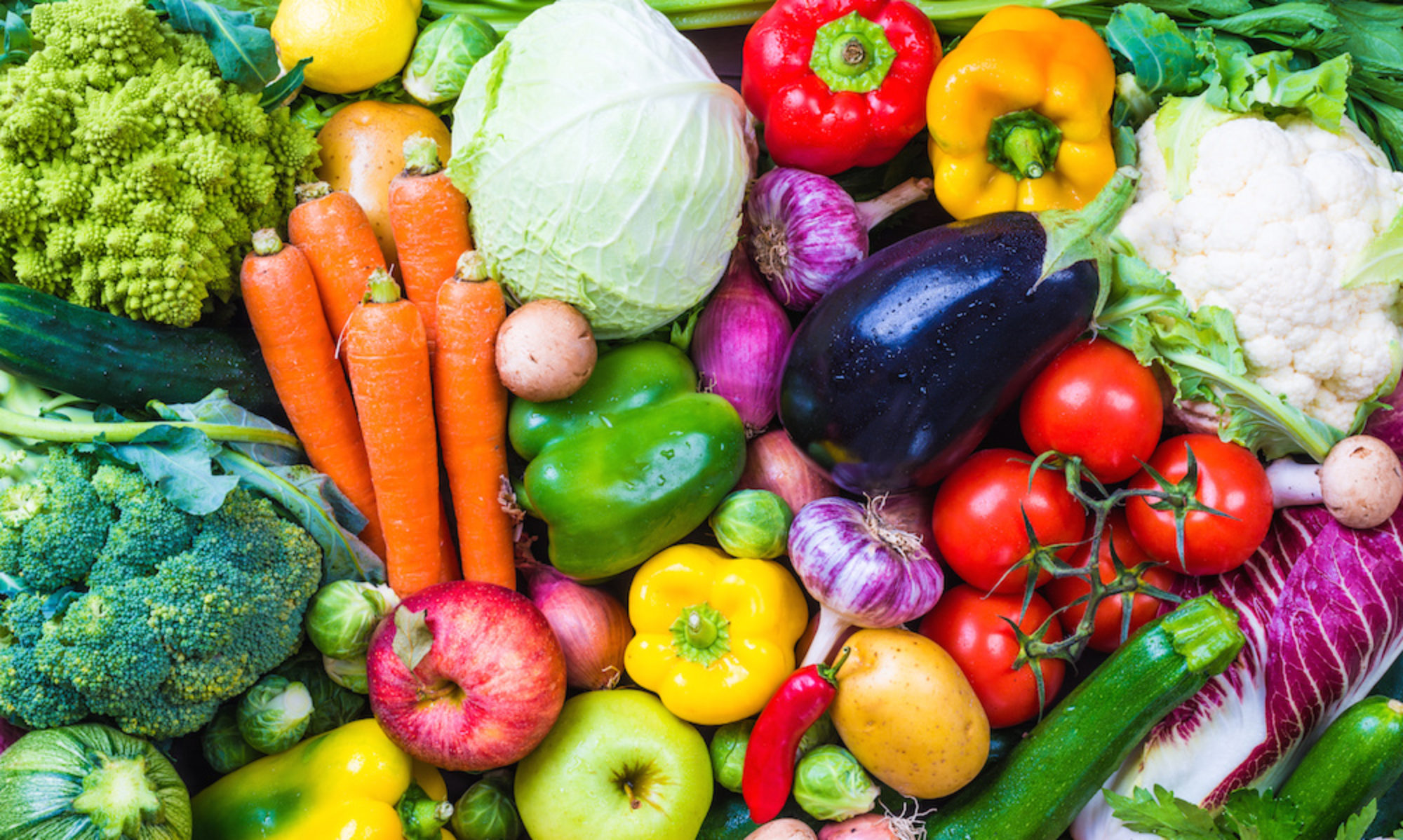Food is a fundamental part of culture, especially in foreign countries. Think of the bratwurst in Germany, the tapas in Spain, or the famous roadhouse barbecue across the United States. Meat plays a very large role in the majority of food dishes throughout the world, so traveling can be a bit of a downer when you visit a restaurant and find that your options as a vegetarian are limited. You may even feel a bit left out watching your travel mates dine on some delicious looking, traditional fare while you’re stuck with a plate of steamed veggies or snacks you packed from home.
Being a vegetarian doesn’t have to mean missing out on the good stuff while you’re traveling, though. Food should be the best part of your vacation. While you may not wish to eat any of the typical plates common to some destinations, you have the opportunity to explore other aspects of the local diet and unlock culinary tidbits that may go unnoticed to the traditional carnivorous tourist.
Below are 10 tips you can follow in order to make your travels a little less stressful at mealtimes, and still have a fantastic time enjoying all the amazing food the world has to offer, while staying true to your vegetarian or vegan diet.
1. Learn the Local Food Lingo
If you’re traveling abroad, it’s important to pick up on a few essential phrases before arriving. Apart from being able to ask for basic directions or tell your name, vegetarians have a few other sentences they’ll want to have memorized. You’ll want to go beyond simply saying, “I’m a vegetarian,” because that alone may not mean the same thing in each country. In some countries, fish isn’t considered meat. In some cases, even chicken isn’t considered meat!
Instead, focus on learning the specifics. In addition to learning Je suis vegetarienne, you may also wish to learn phrases like, “No meat, please,” and, “I don’t eat beef, pork, chicken or poultry.” Even learn how to ask, “Is there a vegetarian option or menu?”

In popular tourist areas abroad, most restaurant staff speak some English these days. If you’re in the U.S. or an English-speaking country, then just remember to be polite and respectfully inquire rather than demand a menu or food options for vegetarians, since no one wants to serve a cranky customer from abroad. You chose to eat there, so be understanding when the restaurant menu was not created with your vegetarian diet in mind.
2. Do Your Restaurant Research
There are actually many vegetarian-friendly restaurants throughout the world, but particularly in major cities where the demand is likely to be higher. Looking up places ahead of time, whether its via the Internet, a guide book or simply asking like-minded vegetarian friends, can give you something to look forward to.
It may be tough to come by fully vegan or vegetarian restaurants in some areas of the world, but in other areas, vegetarian diets may be more popular or even the default! Look for restaurants, stores or even street food vendors that have one or more vegetarian or vegan options to suit your diet.
3. Check Travel Apps for Dining Tips
There are two great free mobile apps – VegOut (iOS) and HappyCow (Android, iOS) – that can help you locate vegetarian and vegan-friendly restaurants all around the world. And, going back to languages, since you may need a little help ordering once you arrive, the mobile app VeggiePassport (iOS) helps diners translate their vegetarian-specific requests into 33 different languages, and counting.

4. Pack Snacks (and Even Meals)
Road trip snacks are essential for anyone, but particularly a vegetarian who will find their options limited at many pit stops, on flights, or at foreign restaurants that offer little besides burgers, hot dogs, candy and chips. Having prepared snacks on-hand that travel well can be a life-saver when you find yourself in a pinch on the road. Find recipes for some delicious trail-mix and whip up a batch before packing. Consider bringing along some of your favorite cheeses and healthy crackers in a cooler, along with yogurt, granola, dried and fresh fruit. If traveling by car, healthy sandwiches/wraps or pita and hummus can be a great fit. For air travelers, nuts, seeds, dried fruit, granola bars or protein bars will be your best bet.
5. Map Out the Local Natural Food Stores
According to the United States Organic Food Market Forecast & Opportunities 2018 study, the popularity of organic and natural food stores is on the rise. The market is expected to grow 14% from 2013 to 2018. These can be valuable tools when traveling to different parts of the country or world.
If there isn’t a Trader Joe’s or Whole Foods around (mainly U.S. travelers), there still may be small natural food stores that have vegetarian-friendly snacks or even ready-to-go meals on-hand. If you’re going to be staying in a vacation rental, home, or other lodging that has access to a kitchen, you can make a game out of it by picking a recipe on theme with your trip, shopping at the local groceries, and putting it together that night for dinner.
6. Make a Vegetarian Bucket List
If you’re going out of the country, research a lot of the local cuisine beforehand and take note of all the vegetarian-friendly options. Compile a list of the ones that appeal to you the most, and make it a mission to check off each one at various restaurants throughout your vacation. It’s a fun and delicious way to explore your destination. These days, nearly everywhere in the world has vegetarian options. Make it a point to find creative ways to experience the quirks and qualities of the local cuisine within your vegetarian diet. When you find delicious vegetarian options that creatively demonstrate the local flavor, I guarantee you will go home inspired to add new tastes from around the world into your home cooking.
7. Go Crazy at Local Markets
Countries like Spain and most parts of Asia are known not just for their fish and meat markets, but also they’re incredible variety of fresh fruits, cheeses and breads. The market on the canals of Venice in Italy was one of the most beautiful spreads of fresh produce I’ve seen. For a vegetarian, this is paradise. You can make an entire meal out of the fresh fruits and veggies at the street market and not just stay healthy but also save yourself the extra cash that you’d spend in a restaurant.

For example, when I traveled to Paris, I was struggling to find great vegetarian options (surprisingly enough, in PARIS!) near where I was staying in Montmartre. I was burned out on what I had been eating, and was desperate for something a little different. Instead of spending a fortune at a nearby restaurant eating the same thing for the umpteenth time in a row, I meandered into a few of the local markets and shops to pick out crepes, fresh fruit and berries, yogurt, and juice.
Confession: That simple little meal in my rented 18th Arrondissement flat while it gently rained outside and I listened to the sounds of the neighborhood was one of the best and most memorable of my trip.
8. Hotel-Friendly Vegetarian Haven
Consider requesting a room with a mini-fridge if you’re staying in a hotel. This option will let you keep your pre-packed snacks, hummus, salads and any great leftovers from delectable vegetarian restaurants you find fresh for the duration of your trip and save you the hassle of having to repeatedly refill a cooler with ice.
Pro-Tip: Bringing a collapsible, portable food storage container or plastic baggies can be very handy when you have a big, delicious meal somewhere and want to extend the food joy one more day.
In the event you can’t find any restaurants nearby that suit your diet, make sure to pack along some hotel meals that can be made in a pinch with nothing more than some hot water.
9. Embrace the Challenge
Being a vegetarian may make some travel adventures a bit more challenging, but that’s exactly what you should view it as – a challenge, and a fun, adventurous one at that. Take the opportunity to hit the road on foot and seek out some yummy vegetarian treats you can pass on to your friends back home. Getting out and exploring the city with a different pair of eyes can help you not only experience a side of the area you may not have otherwise, but will also keep you feeling good and in shape throughout the course of your stay. Soak it up, enjoy every minute of it. Best case scenario, you discover something amazing you didn’t know existed. Worst case scenario, you have a great story to tell friends and family when you return.
